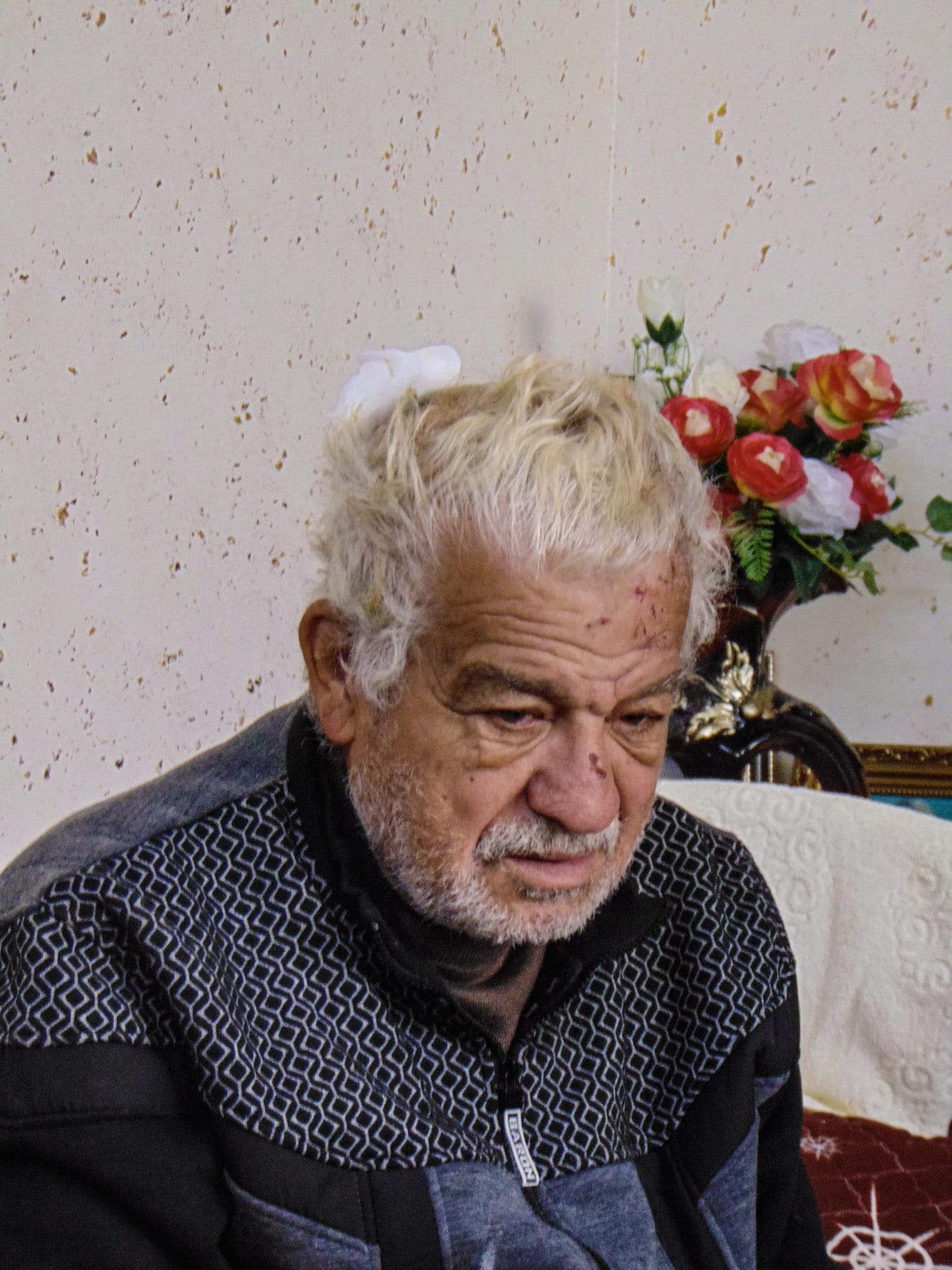Mufid, Burqa
We are sitting in the living room of Mufid Abu Hussein, who has returned home after a stay in hospital. The 71 year old grandfather was attacked by a group of Israeli settlers while tending his sheep just ten minutes from his home in Burqa, in the occupied West Bank.
Mufid told us how he saw ten settlers come down the hill towards him, and he heard them say ‘beat him, beat him’. Three of them, armed with sticks, came close to him while the others, including one with a gun, surrounded him. He tried to fend them off so he could escape, but as he turned to run down the hill, they hit his head. He woke up covered in blood.

His wife knew something was wrong when his sheep returned without him. She ran out of the house to go and find him, but saw him coming down the hill, still bleeding heavily. Mufid spent three days in hospital, including two days in intensive care and had to have an operation for a skull fracture. He shows us the wound on his head, the stitches clearly visible as well as the cuts on his face.
His wife tells us she has worried for a long time that this might happen – violence and harassment from the Israeli settlers has happened in this village before. Mufid feels that if it’s God’s will, it will happen. Besides, he adds, ‘we can’t just stay inside’.
Although attacks like this rarely make the international news, violence from Israeli settlers is very common. Between January and November 2018, more than two hundred acts of violence were committed by Israeli settlers against Palestinians in the occupied West Bank. Three Palestinians were killed, and over eighty were injured. As well as physical assault, incidents include stone throwing, attacks on homes and destruction of property.
Mufid, Nablus
Mufid and his family have not complained to the police. We complain to God, he says, not to people. He lacks faith in the Israeli system to treat his case fairly – ‘if the judge is your enemy, who can you complain to?’
His concerns are well founded. According to Yesh Din, only eight per cent of ideological attacks on Palestinians since 2015 led to charges, and only three per cent led to a conviction. 82 per cent of investigations are closed due to police failure to properly investigate. Often the police investigating crimes committed by settlers live and work in settlements themselves.
According to Yesh Din, many Palestinians simply don’t even complain to the police, due to mistrust in the Israeli authorities and a fear of repercussions for them or their families for reporting the incident. Without consequences for settlers committing violent crimes, a culture of impunity has developed, allowing settlers to attack Palestinians with no fear of repercussion.
Video credit: Yesh Din

